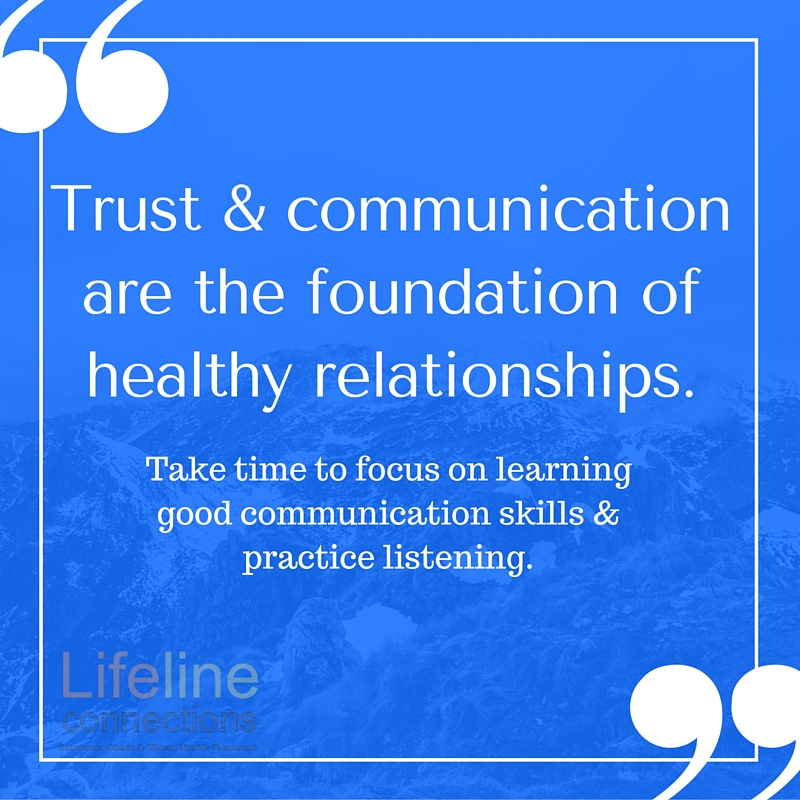
4 Ways to Build and Maintain Healthy Relationships
Even though there are individuals within a relationship, the relationship itself is an entity that needs nurturing and care. Whether you are married or single, you have relationships that require care and attention in order to properly maintain them. Whatever situation you are in, consider applying these tips for building and maintaining those relationships.
R-E-S-P-E-C-T
One way to show respect is to validate the other person’s feelings. When you hear an acquaintance complaining about the traffic on the way to work, you can say something like, “Yeah, traffic is rough.” It makes them feel like you hear what they are saying and that you can empathize with their situation. If you can’t relate such as if you don’t have children, but your coworker is feeling frustrated about how hard it is to get their children ready for school in the morning, all you need to do is show interest in their problem and say something like, “It seems like that would be so difficult.” The same goes for positive feelings. Your friend may tell you when he excited for his birthday. Show that you are excited, too, and he will be more likely to reciprocate those positive feelings later.
Take Aretha Franklin’s advice and “find out what it means” to them. When you aren’t sure if your actions are helping or hurting another person, feel free to ask them. Show them that your intentions are good. Using a phrase like, “It seems like you are going through a really rough time, what would you like me to do to help you?” can work wonders. The other person will feel validated and it cultivates the trust that must exist in a healthy, solid relationship.
Put your own agenda in check.
Sometimes when we interact with other people, we tend to assume that comments or actions are directed at our own insecurities. While this may be true in abusive relationships, it is quite uncommon in most typical relationships. When you feel defensive about a comment or action, consider a new perspective. Ask yourself, “Why am I feeling hurt by that comment? Was it intentionally hurtful?” Sometimes all you need is to recognize your own fears to discern whether or not you should approach the other person about it. Make sure your own agenda doesn’t get in the way of a potentially great conversation. You could even try to ask the other person what they meant by what they said, using non-defensive body language and tone to show that you truly want to understand their point-of-view. Non-defensive listening is a skill that creates a safer environment for relationship-building dialog.
Work on giving constructive feedback.
Once you have listened to, validated, and empathized with the other person, then there may be an opportunity to give feedback. Make sure you utilize the right words to elicit positive responses. Criticizing mostly causes negative results and reverses the progress you made when you tried to listen appropriately to what they wanted to tell you. If the other person did something to hurt you, it is appropriate to let them know how it made you feel. “You’re being mean” doesn’t go as far as “What you said made me feel like you don’t care about my opinions.” Of course, it is important to consider who you are talking to before you give certain feedback. The above example would be more appropriate for a personal relationship rather than a professional one. In professional settings, try to express your good intentions and let the other person know that you intend to work together. Continue to ask questions and give feedback with the desire to understand and collaborate, rather than change the other person’s point of view- this creates a power struggle that is more likely to hurt the relationship in the long run.
Trust.
Trust that the other person is going to do the right thing, even if it doesn’t happen right away. Obviously people mess up, and that’s real life, but trust that the other person will learn from their mistakes and try to grow. If you are there with them and you are using the previous three skills, they will be more likely to see you as an ally while you provide a little bit of guidance. Mistrust often leads to destructive behaviors like micromanaging or even something as extreme as physical abuse. If you are feeling afraid about someone’s actions, find a constructive way to express your fear to them. Show them that you care about them and that you want the best for them, and when you have gained their trust, you can offer to help. However, remember the adage that you can lead a horse to water, but you can’t make him drink. Do your part, trust that they will do theirs, and then see what happens.
Fostering healthy relationships is one of the most important steps in recovery. At Lifeline Connections, we have therapy and counseling options for adults who are struggling with substance abuse and mental illness. Check out our recovery community for ways we can help you build a better support system or our alumni program which is designed to help you succeed during life after treatment. Our alumni program has a bi-monthly meeting where you can find the right people who relate to your treatment and recovery. Feel free to call us at 360-397-8246 or email us at [email protected], about your recovery needs.
[Image by stockpic via pexels.com]
